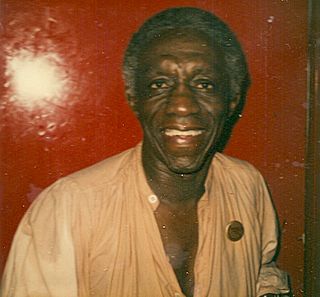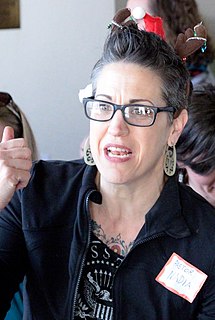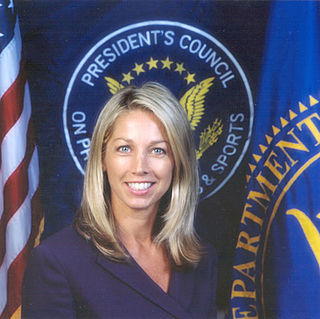Цитата Камиллы Грэммер
Если мы сможем простить, это поможет нам расти и не оставаться на месте. Тогда мы сможем двигаться дальше без враждебности и обид.
Связанные цитаты
Мы причиняем друг другу боль, вот в чем дело. Обижай, раздражай, смущай, но иди дальше. Люди, это просто так не работает. Ваши собственные чувства становятся настолько сложными, что вы забываете, насколько уязвимыми могут быть другие люди. Вы тратите много энергии на то, чтобы защитить себя. Все эти слои, мотивы и чувства. Тебе больно, иногда ты остаешься больным. Боль влияет на вашу способность идти вперед. И слова. Все слова между нами. Слова могут быть постоянными. Некоторых невозможно простить.
Что такое прощать? Прощение — это отказ от всех претензий к тому, кто причинил вам боль, и освобождение от эмоциональных последствий обиды. Как мы можем сделать это? Это сделано ценой подавления нашей гордости. По своей природе мы эгоистичны. Прощение по определению бескорыстно. Быть обиженным другим человеком ранит нашу гордость. Гордость стоит на пути прощения. Мы не можем простить без Божьей помощи. Мы могли бы простить что-то несущественное без Божьей помощи; но в важных делах мы вряд ли добьемся чего-либо без участия Бога в этом процессе.
Мы прощаем, если мы мудры, не для другого человека, а для себя. Мы прощаем не для того, чтобы стереть обиду, а для того, чтобы избавиться от остатков обиды, которая живет внутри нас. Мы прощаем, потому что это менее болезненно, чем держаться за обиду. Мы прощаем, потому что без этого обрекаем себя на бесконечное повторение той самой травмы или ситуации, которые так нас ранили. Мы прощаем, потому что в конечном итоге это самое разумное действие, которое мы можем предпринять от своего имени. Мы прощаем, потому что это возвращает нам чувство внутреннего равновесия.
Без вас, без ваших нападений, без вашего выкорчевывания нас с корнем, мы всю жизнь оставались бы косными, косными, ребячливыми, невежественными и о себе, и о Боге. Вы, кто избивает нас, а затем перевязывает наши раны, вы, которые противостоят нам и уступают нам, вы, кто разрушает и строит, вы, кто сковывает и освобождает, сок наших душ, рука Божья, плоть Христа: это вы , имеет значение, что благословляю.
Когда происходит несправедливость, мы хотим, чтобы нас оправдали. Люди чувствуют, что если они простят человека, который их обидел, то они продолжат им пользоваться или не возьмут на себя ответственность за то, что сделали неправильно. Если быть честными, мы признаем, что обычно хотим, чтобы человек, причинивший нам боль, заплатил за то, что он сделал. Мы не сможем пройти мимо этого, пока не получим откровение, что только Бог может отплатить нам тем же. Он наш Защитник. Он исцелит и восстановит нас, если мы доверимся Ему и простим наших врагов, как Он сказал нам.
Говорят, что когда бог был в Иерусалиме, он простил своих убийц, но теперь он не простит честному человеку разногласий с ним по поводу Троицы. Говорят, что Бог говорит мне: «Прости врагов твоих». Я говорю: «Да». но он говорит: «Я прокляну свою». Бог должен быть последовательным. Если он хочет, чтобы я простил своих врагов, он должен простить своих. Меня просят простить врагов, которые могут причинить мне боль. У Бога просят простить только тех врагов, которые не могут причинить ему вреда. Он, конечно, должен быть настолько щедрым, насколько он просит нас быть.
Если бы я решал проблемы за других, они оставались бы в застое; они никогда не вырастут. Это было бы большой несправедливостью по отношению к ним. Мой подход заключается в том, чтобы помочь с причиной, а не со следствием. Когда я помогаю другим, я вдохновляю их на самостоятельное решение проблем. Если вы накормите человека едой, вы накормите его только на один день, но если вы научите человека выращивать пищу, вы накормите его на всю жизнь.
Нет врага, который может причинить нам вред, кроме наших собственных рук. Сатана не смог бы нам навредить, если бы нас не предала наша собственная испорченность. Несчастья не могут причинить нам вреда без нашего собственного нетерпения. Искушения не могут причинить нам вреда без нашей собственной уступчивости. Смерть не могла бы причинить нам вреда без жала наших собственных грехов. Грехи не могли причинить нам вреда без нашего собственного нераскаяния.
Бывают моменты, когда мы не осознаем, что нам пора двигаться вперед. Когда жизнь готова к тому, чтобы мы двигались, и мы сопротивляемся, жизнь будет двигать нас любыми необходимыми средствами. То, что может показаться катастрофой, на самом деле является выпускным. Оставайтесь открытыми для руководства, поддержки и защиты Вселенной.
Иногда люди причиняют нам боль непреднамеренно. Мы можем считать, что они намеренно причинили нам боль и хотят отомстить. Но иногда, когда мы действительно оглядываемся назад, мы можем видеть, что они не пытались причинить нам зло намеренно. Именно тогда нам нужно признаться в нашем осуждении их и простить их за их непреднамеренные обиды, причиненные нам.



































